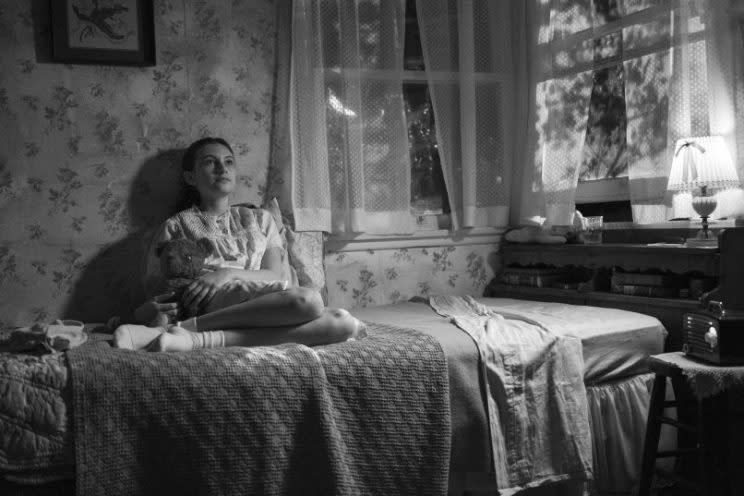David Lynch, ‘Twin Peaks,’ and ‘My Prayer’

This week’s episode of Twin Peaks was beautiful, confounding, but not, as the Twitterverse, would have it, a mind-blower — that’s because David Lynch has long been a firm believer in the notion that (to quote the old public-service ad phrase) a mind is a terrible thing to waste, and Lynch wants you on your toes when you’re gawking at his noir surrealism.
The climax of the episode, titled “Got a Light?” occurs at the KPJK radio station in the 1950s. There, a disc jockey plays “My Prayer,” the Platters hit, featuring an unearthly lead vocal from singer Tony Williams. (Note: One of the members of the Platters was also named David Lynch.) “My Prayer” was released in 1956, 11 years after the first detonation of a nuclear weapon, in Alamogordo, N.M. — an explosion that Lynch had already set off himself earlier in the episode.
The song surges out over the airwaves, and late at night we see various people — a garage mechanic working on a car; a waitress cleaning up a closed diner; a girl sitting on her bed, remembering the first kiss a boy has just given her — listening to the radio. Specifically, they’re listening to the Platters, enjoying the way Tony Williams’s phrasing links together romance and spirituality: “My prayer is to linger with you/At the end of the day in a dream that’s divine.”
As the director and co-writer of this episode, Lynch isn’t going for cheap irony, although that’s certainly one way you could interpret the song’s use here. After all, it accompanies some starkly frightening moments, most strikingly when the Woodsman enters the radio station and kills the receptionist, and then the disc jockey, by crushing their skulls with one hand.
We’ve already seen the Woodsman hover over the shot-dead body of Bad Cooper, massaging the corpse until it yields what my colleague Martin Holmes describes as “a BOB-faced tumor” in his recap. (The Woodsman’s work reanimates Bad Cooper’s corpse, which is going to be a nasty surprise for the shooter, Ray.) We know that whatever the Woodsman has to communicate, it’s not likely to be benevolent. And so when he seizes the radio microphone to begin chanting an incoherent phrase over and over, we don’t expect it to be a lullaby. But, in a way, it is: We see the mechanic drop his wrench and pass out; the waitress collapses on the diner counter; the girl home from a date lies down on her bed and falls into a deep sleep. The Woodsman is using the radio in a way that few people use it today: as a method of communicating to a wide variety of people simultaneously. This is what was lost when radio was no longer a means of mass communication: We stopped listening to the same song at the same time, all of us together in a shared experience.
And so the Platters’ prayer is replaced by the Woodsman’s curse: The girl is so deeply asleep, she doesn’t stir when the creature we saw emerge from an egg at the nuclear blast site — a kind of cross between a housefly and a frog — worms its way into her house and into her mouth. The credits roll over the girl, her eyelids fluttering a little in REM sleep, her breath barely a presence on the soundtrack.
Will we see what happens when the girl wakes up? We won’t know until the next episode of Twin Peaks — if at all. But Lynch has given us all the tools we need to dream about our own version of what happens when someone wakes up to a new experience.
Twin Peaks airs Sundays at 9 p.m. on Showtime.
Read more from Yahoo TV:
‘Twin Peaks’ Part 8 Recap: The Big Bang and the Origin of Evil
‘Fear the Walking Dead’ Postmortem: Ruben Blades on Daniel’s Return

